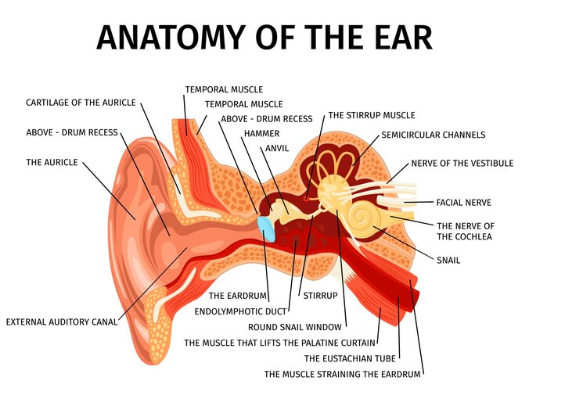Have you ever felt like the world around you is spinning, even though you’re standing still? That dizzy feeling, like you’re on a merry-go-round that won’t stop, is called vertigo. It can be scary, but you’re not alone, and there is help available! Let’s talk about what vertigo is, why it happens and how Vestibular Physiotherapy can help you feel better.
What is vertigo?
Vertigo is a type of dizziness that makes you feel like your surroundings are moving or spinning around you even when you’re not moving. It’s different from just feeling light-headed—it’s more like you’ve lost your balance and the world is tilting. Notably, vertigo can be mild, making you feel a little off, or it can be so intense that it’s hard to stand or walk without feeling like you’ll fall over.
What causes vertigo?

There are a few common reasons why people get vertigo:
- Inner ear problems: One of the most common causes is an issue with your inner ear. Your inner ear has many structures and systems that work together to help control your balance. When something goes wrong there, like small crystals moving out of place (also known as Benign Paroxysmal Positional Vertigo, or BPPV), it can lead to that spinning sensation. In the case of BPPV, the vertigo is usually triggered in certain situations like changing positions but only lasts a short amount of time
- Vestibular neuritis or labyrinthitis: These are the fancy medical terms for when the nerve in your
inner ear gets swollen, usually after having and because of a virus. This can affect how your brain receives and processes information about balance - Migraines: Sometimes, migraines can cause vertigo too. This is called a vestibular migraine, and you may feel dizzy even without the usual migraine headache
- Meniere’s disease: This is a condition where fluid builds up in the inner ear, leading to episodes of vertigo, ringing in the ear, and hearing loss
How can physiotherapy help with vertigo?
The good news is that physiotherapy can be very effective in treating vertigo, especially if it’s
caused by inner ear issues like BPPV. Here’s how physiotherapy can help:
- Special head movements (Canalith Repositioning Maneuvers): If your vertigo is due to BPPV, a physiotherapist can guide you through specific movements, like the Epley maneuver. These movements help move the loose crystals in your inner ear back to where they belong, which often provides quick relief from the spinning feeling
- Balance training: If vertigo has made you feel unsteady, physiotherapy can help with balance exercises. These exercises train your brain and body to work together better, so you feel more stable on your feet
- Habituation exercises: Sometimes, your brain needs help to get used to certain movements that make you feel dizzy. Physiotherapists can design exercises that gradually help your brain adapt, reducing dizziness over time
- Vestibular rehabilitation: This is a customized exercise program to improve your balance and reduce dizziness. It often includes exercises for eye movements, head movements, and even walking to help you feel more in control of your body
What to expect during physiotherapy
When you visit a physiotherapist for vertigo, they will first ask you about your symptoms—when they started, what makes them worse, and how often they happen. They may do some tests to figure out which type of vertigo you have. Once they know the cause, they’ll create a treatment plan just for you. Many people feel better after just a few sessions, especially if they have BPPV. Other types of vertigo might take more time, but with regular exercises and guidance, most people see a big improvement.
Tips to manage vertigo at home
● Move slowly: When getting up from bed or changing positions, do it slowly to avoid
triggering dizziness
● Sleep with your head elevated: Using a couple of pillows to keep your head raised can
sometimes help prevent vertigo episodes
● Stay hydrated: Dehydration can make dizziness worse, so make sure you drink enough
water throughout the day
When to see a Physiotherapist
Vertigo can make everyday activities feel overwhelming, but with the right treatment, you can take back control. Physiotherapy offers effective, and sometimes immediate solutions for vertigo, where changes can happen within a single session. Remember, you don’t have to live with the spinning—help is available, and our physiotherapists are here to guide you through it. If you’re experiencing dizziness that doesn’t go away, or if it’s affecting your daily life look for PhysioNow! Our Vestibular Physiotherapists can help you understand what’s going on and provide the right treatment to get you back to feeling steady and confident. Book with PhysioNow today for your first Vestibular Assessment and treatment!
If you want more information about vertigo and dizziness, Mayo Clinic has a good article.





Leave a Reply